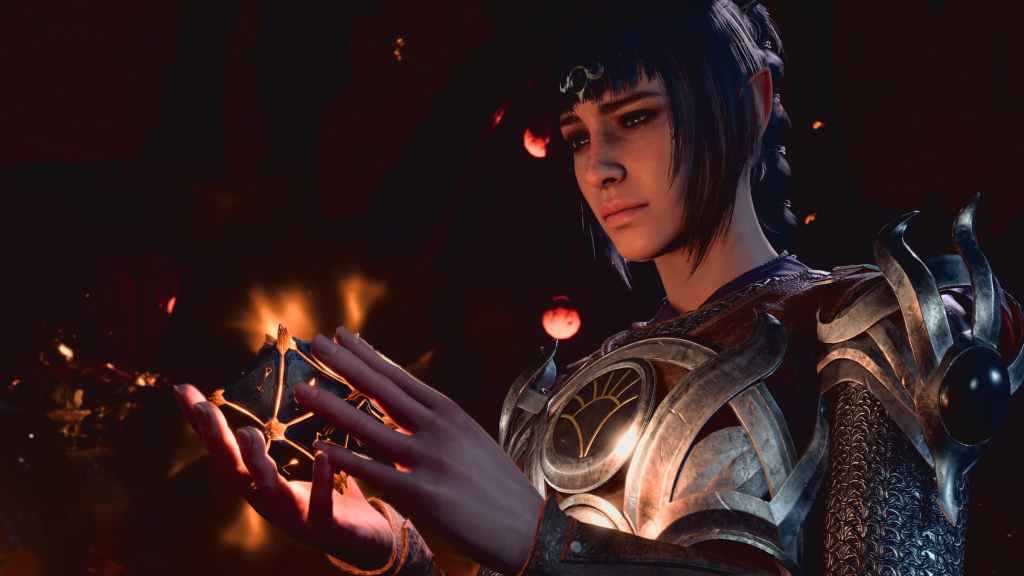Baldur’s Gate 3 is already seen as one of the standout RPGs of its generation, a game that did far more than simply satisfy long-time fans. It pulled players into a world that felt unpredictable and strangely personal in a way most modern games rarely manage. Not only was it a polished CRPG. It was a reminder of how wild and imaginative the genre can be when a studio decides to swing for the fences and trusts the audience to roll with whatever chaos follows. The result was something special that arrived at exactly the right time.
Videos by ComicBook.com
Looking behind the scenes makes it even clearer that Baldur’s Gate 3 came from a very specific set of circumstances. Its development involved huge risks, constant iteration, and choices that would be off limits for most studios today. The overall approach was experimental in a way that is incredibly rare in the current industry, and it paid off only because Larian was willing to do things in ways that were not safe or efficient. Even Larian has said publicly that they will not make another Baldur’s Gate game. When the studio that managed to pull it off once decides it is not worth doing again, it becomes hard to imagine anyone else jumping in to replicate something this massive.
Larian’s Relentless Commitment to Player Freedom

One of the biggest reasons Baldur’s Gate 3 stands apart is how committed Larian was to letting players do almost anything they could think of. Instead of narrowing choices, the game constantly opens them up. It allows players to solve encounters in ways that seem completely off the rails, talk their way out of fights that should be unwinnable, save characters that other studios might treat as minor, and create outcomes that seem impossible in more controlled RPGs. Larian allowed the game to break, then worked to support the resulting behaviors until they felt intentional. Most developers simply do not have the time, staffing, or freedom to let that happen.
This philosophy shaped every part of the project. It was not enough for Larian to include one or two wild outcomes. They rebuilt quests, rewrote scenes, and adjusted systems again and again based on how players acted during Early Access. That process created thousands of small reactions, narrative branches, and alternate scenes that exist because the developers refused to let the game collapse into a straightforward path. BG3 works the way it does because the studio prioritized possibilities over predictability and ran with it. Very few teams have the resources or the creative environment needed to support that level of openness for years at a time.
The Cost of Crafting a True Choice-Driven World

Plenty of games claim to offer choice, but Baldur’s Gate 3 actually delivers on it in a way that affects the entire journey. Characters can live or die depending on tiny decisions. Whole areas can change or be made inaccessible. Minor conversations in the early hours can come back in surprising ways far into the story. This amount of branching did not come cheaply. It required Larian to build and polish a massive number of potential narrative paths, instead of focusing on one clean, polished route. The amount of writing, cinematic work, scripting, and QA involved in supporting this many possibilities is something most studios just wouldn’t commit to.
The real challenge is how unpredictable this kind of development becomes. When a story can shift in dozens of directions, everything from level design to companion scenes becomes harder to schedule and coordinate. Teams end up rewriting story beats and adjusting systems because one unexpected outcome caused several downstream issues. That kind of work demands a flexible studio culture and a willingness to accept that rigid roadmaps will not survive contact with a game full of player-driven chaos. Most publishers and large studios rely on predictable timelines and controlled development pipelines, and a project with this level of branching depth simply does not fit that model.
Why Big Studios Won’t Take This Risk

It might seem like the success of Baldur’s Gate 3 would inspire more studios to attempt something similar. But remember that once budget realities enter the picture, the idea becomes far less appealing. Major studios operate under pressure to deliver consistent results, often at the expense of creativity, and that pressure reduces the room for experimentation. BG3 required constant iteration, a willingness to redo major parts of the game, and a structure that basically is the antithesis of efficient production. Big studios want stable pipelines, not creative risks that expand development by years. A project built like BG3 would introduce too many unpredictable costs, too many scheduling challenges, and too many potential points of failure.
There is also the issue of staffing. A truly reactive RPG is not just expensive. It requires a large number of writers, cinematic designers, actors, and QA testers working in sync across dozens of possible outcomes. Many AAA teams are already stretched thin, and taking on something with this level of complexity would multiply the demands on every department. The fact that Larian, a team known for this exact style of RPG, has openly said they do not plan to make another Baldur’s Gate game says a lot. If the studio that mastered the format finds it too much to repeat, expecting a larger and more risk-averse company to attempt it is unrealistic. It’s kind of a shame, because getting more games like BG3 would be a dream come true. Unfortunately, in today’s industry, it is an unfounded expectation to have.
What do you think? Leave a comment below and join the conversation now in the ComicBook Forum!









